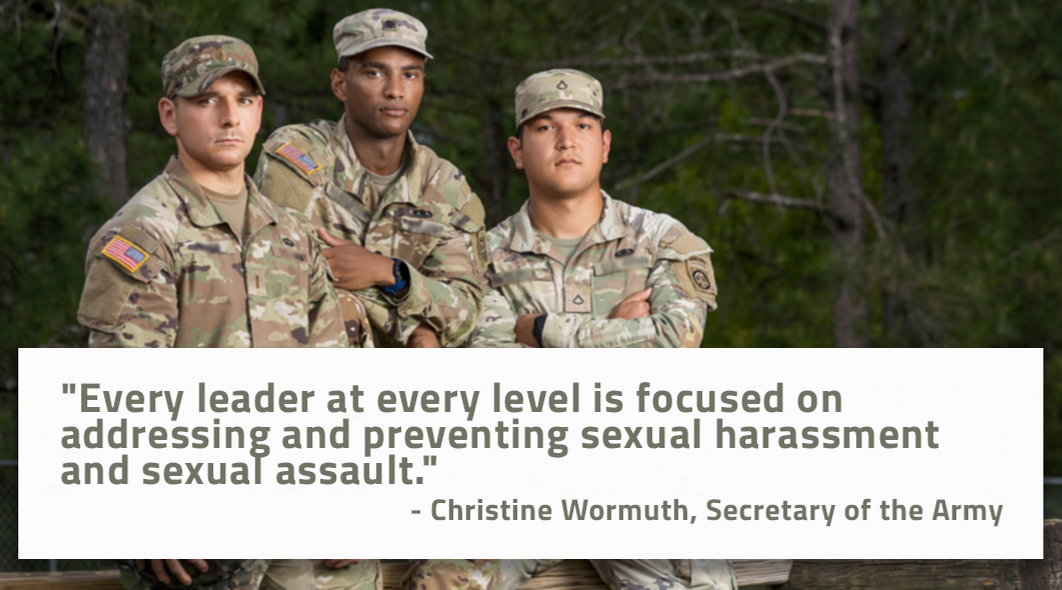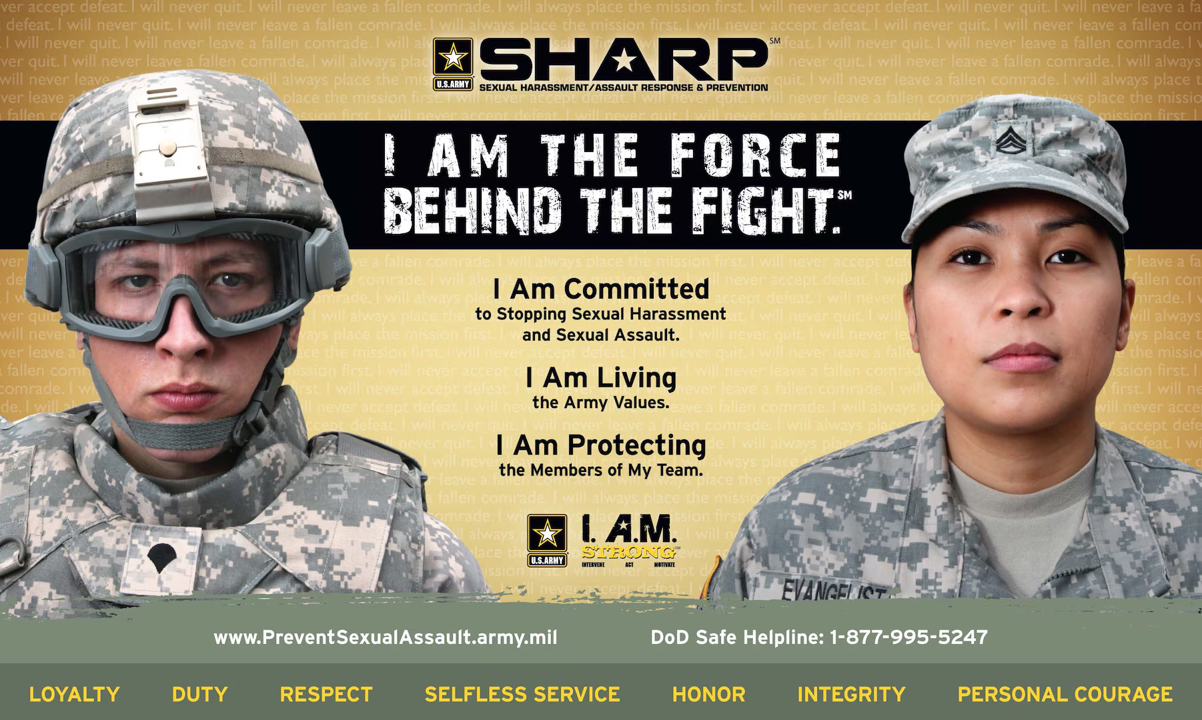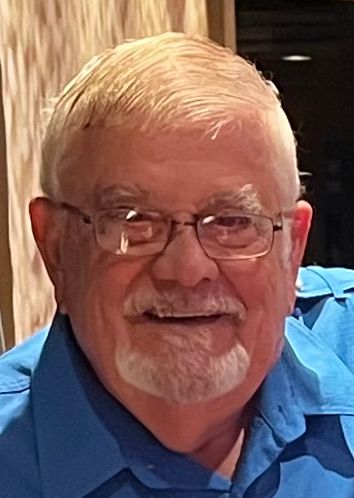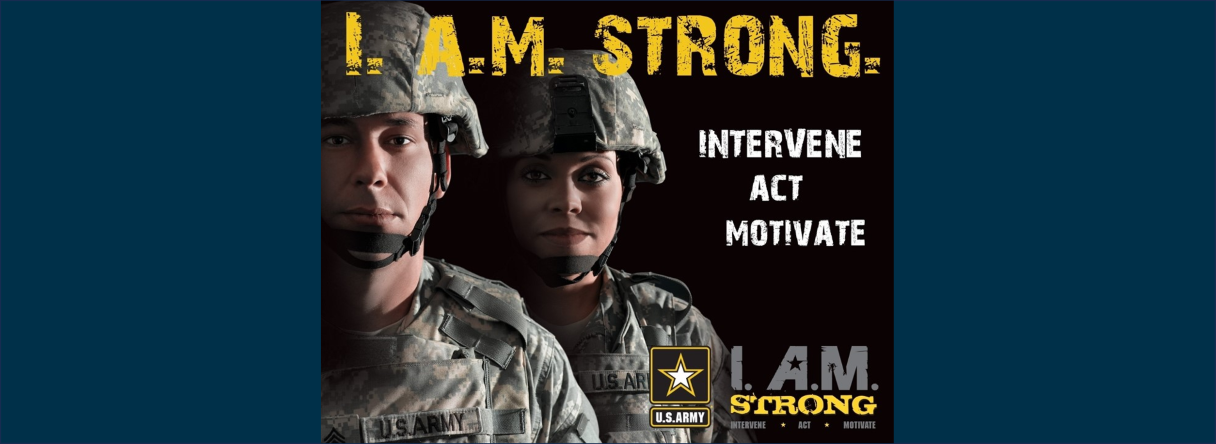By COL (Ret) Gary L. Gresh
Just what is harassment?
First of all, I am not a lawyer; I’m a former leader of Soldiers and men and women in the civilian sector. If you want legal definitions and advice, seek out a lawyer where you are assigned. This article is meant for the leader responsible for establishing an exemplary environment in their command, unit, or section. It is intended to be common sense, not legal opinion.
All harassment is really pretty simple to understand. It is unwanted or unwelcomed sexual or demeaning conduct. It can be experienced by all people, regardless of whether a biological birth certificate was issued by the hospital at birth or by life choice later by the individual. It’s unwelcome or unwanted if the individual tells you so, which is a crucial element of harassment. It would be best if you told the individual that their conduct was not desired and was unwelcome.
You cannot assume that everyone knows what sexual or simple harassment is or that you are uncomfortable with their conduct towards you. While you are certainly free to report unwanted attention, actions, or unwelcome comments to the chain of command at any time, it’s generally fair to put the individual on notice before you take it to the chain of command, unless the conduct is so bad that it clearly is criminal in nature, such as rape, assault, or physical attack. In such cases, you should report the attack immediately to the chain of command. If the individual you want to report is a member of the chain of command, other sources of help are available, such as the police, your unit Chaplain, the JAG office, or the Court.

All harassment generally presents itself in one of three ways: Verbal (demeaning) or sexual, Visual (written or photos), and/or Physical (short of assault) harassment. Such physical harassment is generally presented as light bumping, light pushing, light touching, or simply uncomfortable attention, such as putting an unwanted arm around you. You should speak up immediately.
Verbal harassment can also take the form of unwanted sexual or demeaning jokes or descriptions of sexual body parts in your presence. This can be very uncomfortable to everyone depending on many factors, including religion, social upbringing, education, country region, and even because it’s embarrassing in public. This is usually the easiest harassment to confront. Just a simple “I did not appreciate that joke” is usually enough to send a strong signal.
Visual harassment can be more complicated, especially with the internet age. Someone can send you a cartoon you don’t appreciate, and you may feel uncomfortable responding. Generally, it’s best to reply that you did not appreciate the cartoon and then follow up and tell them again the next time you see them.
The environment can sometimes hide Physical harassment. Such as bumping into you whenever you’re in the hallway in the crowd. “Did he or she purposely bump into me, or was it accidental?”
Harassment can often take the form of demeaning you in a group, such as “Ah, he is just a WUSS!” You must learn how to handle yourself in such situations and quickly deal with the offender. If you are a Non-Commissioned Officer, Warrant Officer, or Officer, sexual harassment can undermine your leadership, respect, credibility, and effectiveness. You must deal with it quickly and firmly.
Harassment becomes criminal when threatening behavior is involved, or your person or position is put in danger. A sexual battery or assault can also be hidden as a “Quid Pro Quo” or “This for that.” Such an action becomes criminal and can lead to jail time. An example action could be, “Have sex with me, or I will fail you on your next PT test.”

In civilian life, many people ignore harassment directed towards them when they encounter it. They pretend they did not see it or feel it’s none of their business. They worry they could lose their position if they report the harassment. This is very common in the business or hourly blue-collar workplace, which was one of the reasons I chose a military career. I liked the fact that we live by a code of honor and the UCMJ, which “REQUIRES” all soldiers to report inappropriate conduct. As a fellow Soldier or leader, you cannot stand by and do nothing when you witness sexual harassment. Doing nothing makes you complicit.
No one should be made to feel uncomfortable just because of their sex or stature. You are a leader. LEAD! If you cannot live by the regulations of the service, then leave and do something else. Service members depend on each other for their lives, so you cannot doubt their honesty, integrity, or intentions. You must report harassment and confront it head-on. Be all you can be as a leader, a fellow Soldier, and/or a friend.

COL (Ret) Gary L. Gresh (Greshg@bellsouth.net), Author, Amazon Books Publishing. COL (Ret) Gresh is an AG Corps Hall of Fame inductee, Class of 2011, and a Distinguished Member of the Corps. COL (Ret) Gresh served in many AG, Special Forces, Ranger, and Airborne Units commanding at every level from a Platoon leader in Vietnam in the 101st Airborne Division, to the Commander, 18thPersonnel Group out of then Fort Bragg, NC during Operation Desert Shield / Desert Storm. During his 30 years of service, he earned over 24 awards and decorations in the Army, including the Distinguished Flying Cross, Two Bronze Stars, and The Legion of Merit. The Secretary of the Army awarded COL (Ret) Gresh the U.S. Army Distinguished Service Medal upon his retirement as the 20th Commandant of the Adjutant General School and the 7th Chief of the Corps.
